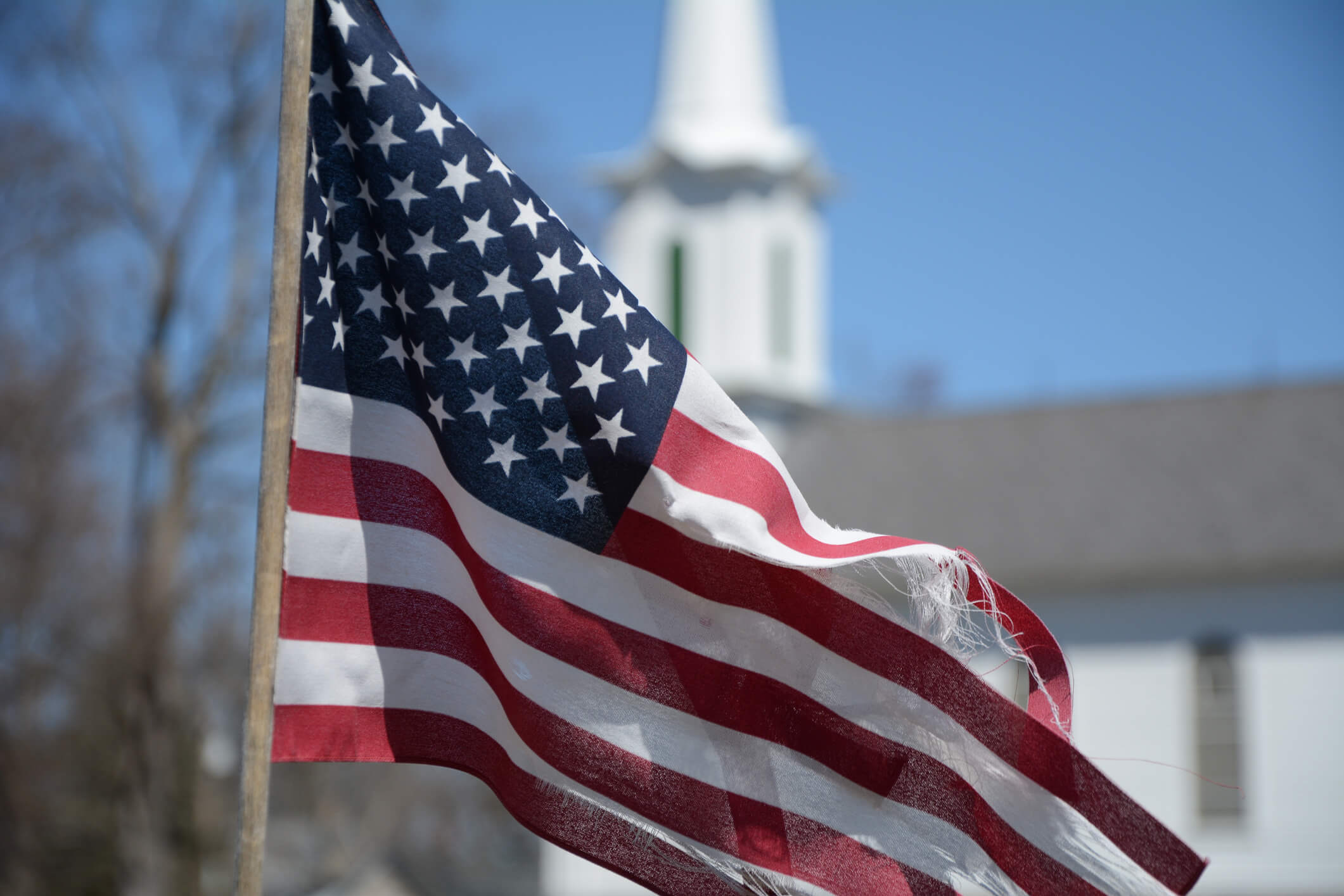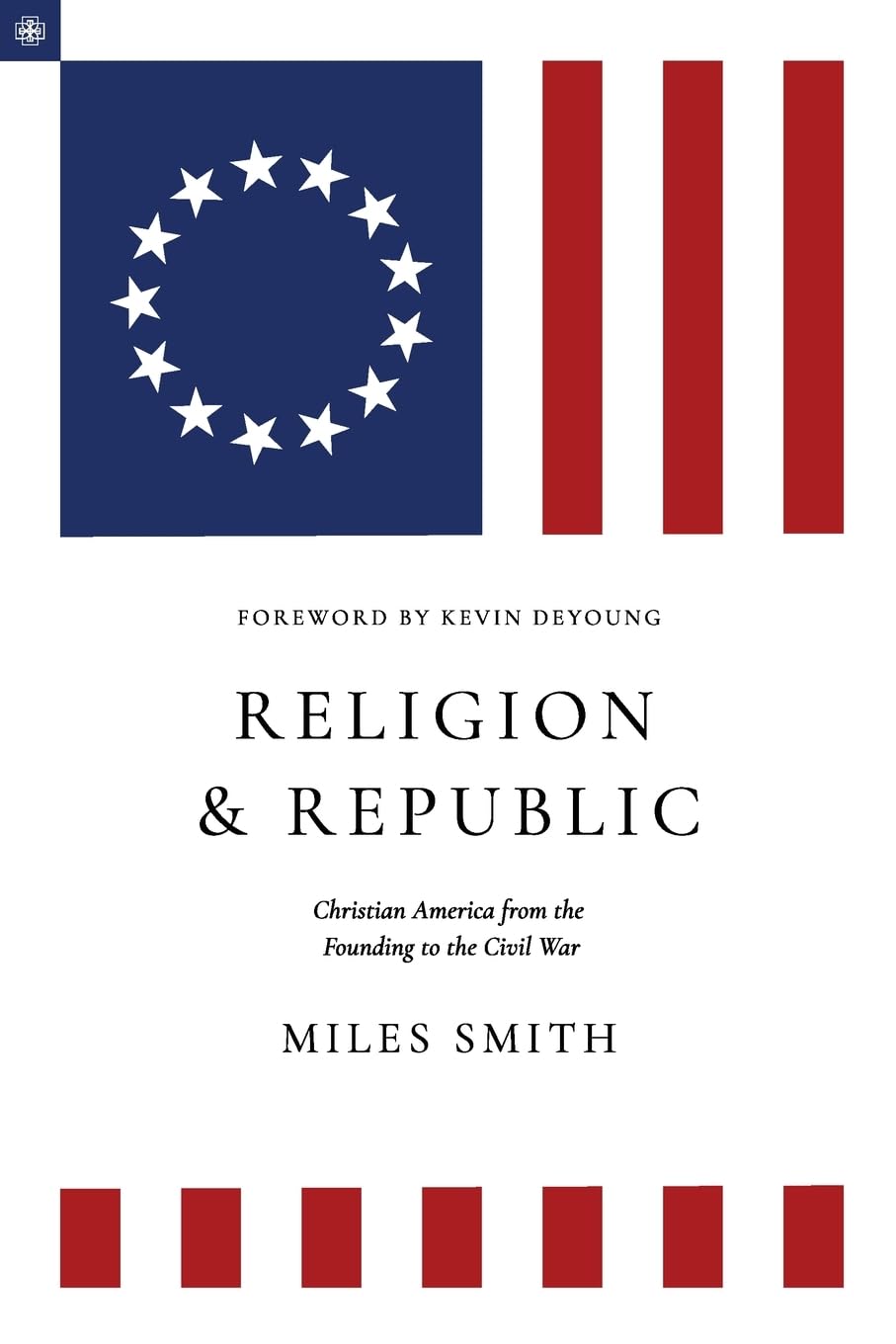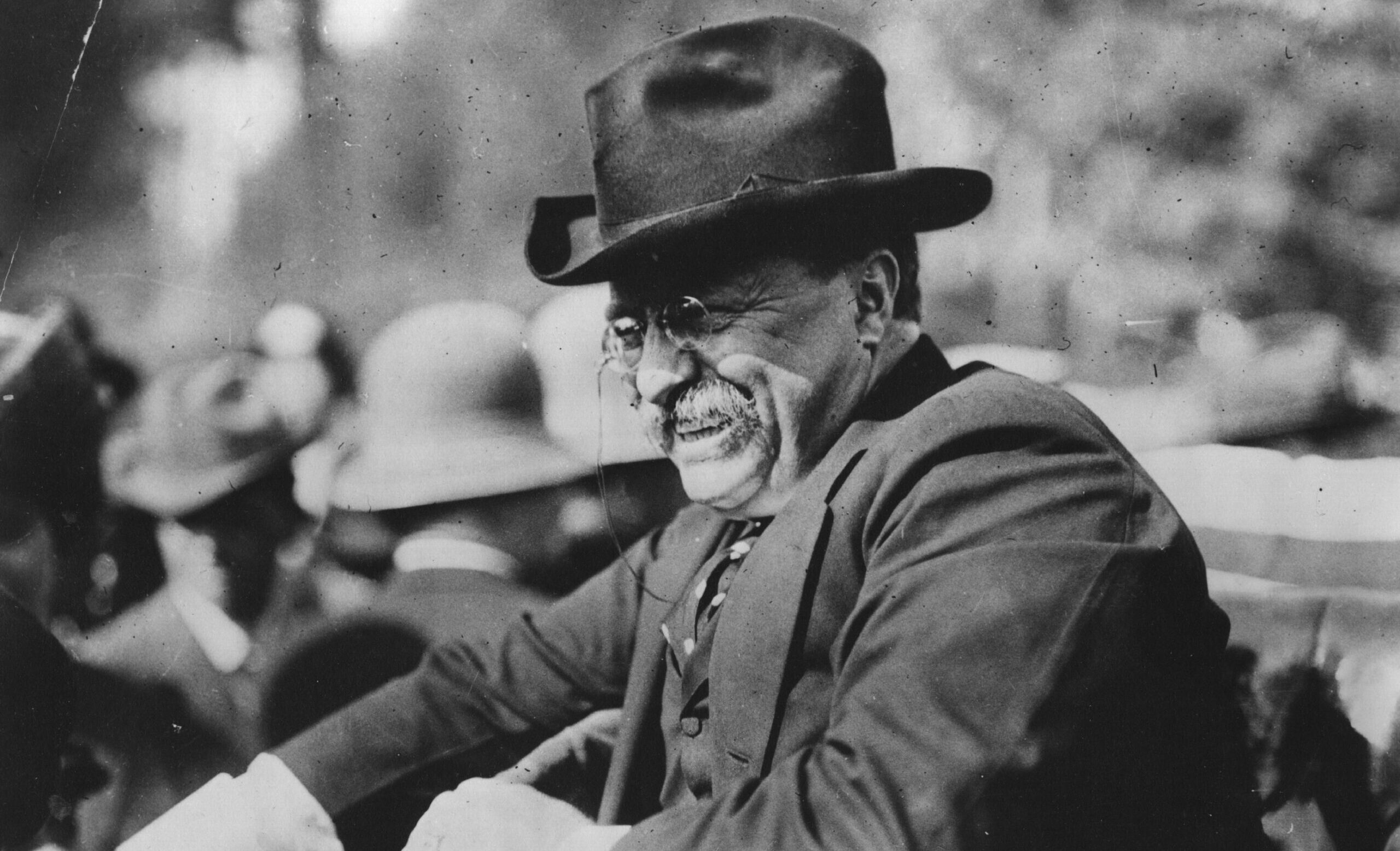Although Protestantism—including its beliefs in original sin and divine providence—shaped the character of the American nation, no church could be established at the federal level, of course, because of the First Amendment to the United States Constitution. But the Protestant influence has persisted to a remarkable degree, not only through bodies of believers—by way of their experiences of redemption and their commitment to reform—but also through American institutions.
Indeed, there have been at least three major phases of Protestant religious “establishment” in U.S. history, establishments that can be designated as formal, semi-formal, and informal. In Religion & Republic, the historian Miles Smith is concerned with the second phase. By the beginning of the twentieth century, the Protestant Establishment in America still existed, but it had stepped down another rung to the informal level. Today this establishment is no more, and Protestant Christianity in its multiple expressions competes on even ground, without any discernible advantages, in a religiously—and non-religiously—variegated culture.
Smith’s treatment in this volume is objective and historical, not polemical or sectarian, although he makes it clear at the outset that he is an Anglican. His thesis is that the United States in many ways remained a Christian republic between 1789 and 1861—and beyond. He rejects the phrase “Christian nationalism” as confusing and unhelpful: best to put it aside. What he affirms as historical fact is the perduring vitality of Protestant institutions and their influence on American culture.
For many evangelicals, American institutions have been of secondary importance: the individual and the nation have seemed more significant. But evangelical revivals, although life-changing for individuals and transformative for American religious history, did not efface the influential role that institutionalized Protestantism has played within American life. This activity did not require theocracy or national establishment to have a substantial effect on society. “What this volume proposes,” Smith writes, “is that the United States Constitution’s disestablishment did not secularize society, nor did it remove institutional Christianity” from the realms of education, law, and politics. That displacement “occurred nearly a century later.”
Informed by both the English Whig and late-eighteenth-century American republican traditions, this voluntarist order, which recognized that religious belief and membership must be the products of the individual’s untrammeled will, was, therefore, liberal in respect of the establishment of religion but conservative in its grasp of the role of Christianity in American society. Smith ably demonstrates how Americans by and large accepted this continuing role for Christian institutions, “perpetuating . . . Christianity through federal and state courts, state colleges and institutions, state legislatures, and executive proclamations from governors and presidents,” as well as “through state cooperation with religious institutions.”
Both church and state, he says, were united in working to achieve a common goal: fostering a moral realm that embraced “historically Christian conceptions of virtue.” The cultural weight of these institutions, which incorporated conservative understandings of ethics and social order, countered irreligious tendencies to moral radicalism. Christians believed that religious faith had a beneficial impact on law, politics, and education. Thus, it warranted the support of civil magistrates. At the same time, Christians believed in religious liberty. In Democracy in America, Alexis de Tocqueville memorably depicts the benefits of the entanglement of religion and liberty. Unforgettably, too, Samuel Francis Smith highlights these themes in his patriotic hymn “My Country ’tis of Thee.”
Particularly valuable is this volume’s chapter on Thomas Jefferson, who aimed to do more than merely end the privileges of state churches; he also wanted to see Christianity removed from the civil sphere. The author makes it clear that Protestants in the early republic embraced freedom of religion but generally rejected the Sage of Monticello’s wish to remove institutional Christianity’s influence from civic life; they declined to join what Smith calls his “personal war against churchly authority.”
Among the most important spokesmen for religious institutions and their continuing influence were New England Federalists, intellectuals in colleges and universities, and religious and judicial elites: they generally upheld the fundamental role of Protestantism in American culture. Smith points out that they and their like-minded Protestant brethren would have agreed with most of the Framers, who did not endorse a wall of separation between church and state. Many Protestants in the early republic believed that American society needed the efforts of practicing Christians in order to prosper; good Christian men and women fortified the Republic.
At the same time, disestablishment had a positive impact on religion, strengthening Christianity in the public sphere. It prevented an Erastian subordination of the Church to the state. It reduced political interference with religion and avoided the negative reputation that came with state control.
Chapter 4, on courts, shows how much Christianity has been held to be part of the common law in the United States, producing a “lingering entanglement between Christianity and the courts.” Without decreeing a theocracy, judicial practice at this time did maintain “a form of Protestant . . . ascendancy,” which legally protected institutional religion into at least the Civil War period, for example making it easy to prosecute blasphemy. Chapter 5, on the Sabbath, shows the workings of the law in relation to Sabbath commerce, travel, and mail delivery.
In his chapter on the Indians, Smith analyzes the degree to which American Protestants’ missions to Native Americans were supported by the national government. Federal officials protected missionaries, and they used them “to further the political and social aims of the . . . American republic. Government-funded missionary work illustrated the degree to which religious and political institutions in the Early Republic were intertwined.”
In this chapter, Smith reveals the disdain many of the new settlers on the frontier had for institutional religion. With this contempt came an “early folk racism.” He discloses the harmful effects of the Jacksonian regime’s attitudes and policies on both Christian missionaries and the Indians. The more secular-minded Jacksonians were eager to favor land-hungry whites.
Smith’s chapter on education provides compelling evidence of the leading roles of Protestant clergy even in public colleges; that is, before these institutions were secularized in the period between 1880 and 1950. These clergymen often conducted chapel services on campus, for example. Smith observes, moreover, that state colleges and universities were regularly presided over and staffed by Protestant ministers. Eminent clergy taught moral philosophy and related courses.
Even the modernization of the curriculum in the 1830s, which eliminated memorization of biblical and classical texts and introduced German methods of critical inquiry, did not remove the Christian elements. The view of the reformers was that students would benefit from knowing that Christianity was good for both the American republic and civilization at large. “The public colleges and universities of the Early Republic served as a chief institutional vehicle for the implementation of Christian theology and Christian practice in the respective states,” Smith writes. Indeed, Christianity was incorporated as “the beating heart of education in state colleges.” Thus, these academic foundations resembled the courts, legislatures, and missionary bodies.
In the book’s conclusion, Smith affirms that religious and political institutions in this period were mutually and beneficially involved with each other. In light of this history, he recommends that today’s Protestants strive “to understand that while they can’t dial back the clock to the Early Republic,” they can be “stewards of healthy and responsible Christian institutions at the local, municipal, and state levels, and in the arts and sciences as well as in politics—because this is what America’s character as a Christian nation has always meant.”
He also asserts that today’s evangelicals, who too often stress individualism or ideal nationhood over crucially important intermediate bodies (including civil, religious, educational, and political associations), should recognize how valuable these institutions are for sustaining civilizations. Protestant Christians in the early republic demonstrated the significance of “maintaining Christianity in civil and social institutions. For that reason alone, they deserve our attention, if not our respect.”
Religion & Republic is a well-researched, judicious, and engaging work that leaves the reader eager for more. I would certainly be interested to see this young scholar write another book, which would take this story into the twentieth century and beyond—that is, into the third representation of a Protestant establishment in America. This era, following the second disestablishment (around 1880–1920), would include foreign policy (Christian realism and the Truman administration, for example), public education, Sabbath legislation, and so forth. But it would also discuss the influence of private Protestant institutions, such as independent schools, within American culture. Certainly it would come to grips with the rise and fall of the Protestant mainline, whose leaders, including Episcopal bishops and Presbyterian divines, held so much sway up until about 1970.
History does not move in circles or repeat itself, but it does strike recurrent notes. Mainline Protestant churches have lost their dominance, and their most prestigious scholastic foundations, as Louis Auchincloss makes clear in his novel The Rector of Justin (1964), have produced mixed results for the nation’s ruling class. But conservative Protestants and Roman Catholics are now exercising, through their tradition-oriented primary and secondary schools, as well as through the homeschooling movement, a new influence in American life. The ethos of these institutions is more culture-challenging than establishmentarian, more reflective of a persistent pluralism than of any kind of societal unity. But who can say what the future will bring, other than that it will belong to the children now being formed and guided?















